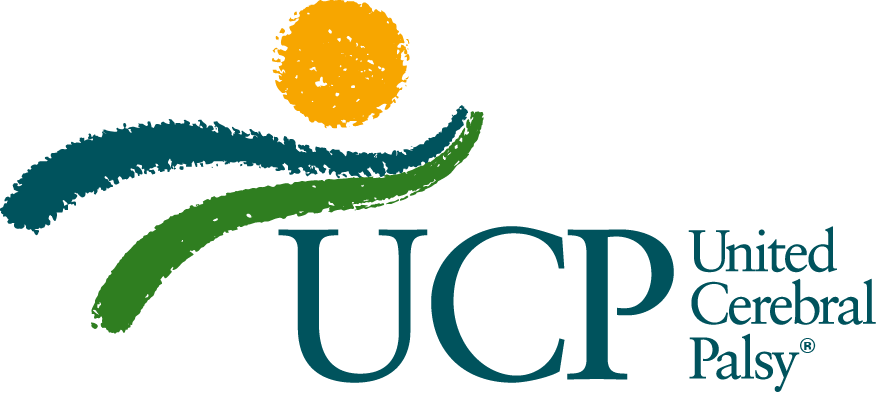Case for Inclusion 2022 Reveals Desperate Need for Investments to Rebuild Crumbling Direct Care Workforce, Alleviate Ballooning Waiting Lists for Services
WASHINGTON, D.C. – A new report issued today by United Cerebral Palsy (UCP) and the American Network of Community Options and Resources (ANCOR) Foundation finds that the ability of provider organizations to recruit and retain qualified workers within the system that delivers Medicaid-funded services to people with intellectual and developmental disabilities (IDD) is rapidly deteriorating.
The Case for Inclusion 2022 provides clear evidence that long-standing obstacles to recruiting and retaining of direct care workers, amplified by the COVID-19 pandemic, have pushed the service delivery system into a state of emergency.
Among other findings, the report shows that in 2020, turnover among direct support professionals (DSPs), the workers who deliver IDD services on the frontlines, stood at nearly 44 percent. The report also finds that between 2019 and 2020, there was a 45-percent increase in the number of full-time DSP positions that remained vacant, with one in eight such positions unfilled at the end of 2020.
High job turnover and vacancy rates can be directly tied to stagnant DSP wages. The average starting DSP wage was $12.72 per hour at the end of 2020, and although this represents a modest increase over 2019 levels, providers frequently report being unable to compete for workers against other hourly wage industries such as fast food and retail. Notably, these private industries often had the resources to offer higher wages and pay incentives in response to the pandemic; IDD service providers, on the other hand, lacked the flexibility to adapt similarly because DSP wages are primarily determined by states’ Medicaid reimbursement rates.
The combined crises of worsening labor shortages and the continuing public health emergency are proving devastating for people who need disability services. Nearly 590,000 people with IDD nationally were on states’ waiting lists for Medicaid-funded Home and Community Based Services (HCBS) in 2018. This number has undoubtedly ballooned given that ANCOR’s prior research has found that 77 percent of service providers reported turning away new referrals and 84 percent said they delayed the launch of new programs and services because of persistent labor shortages.
Published annually, the Case for Inclusion assesses all 50 states and the District of Columbia by tracking 80 indicators of how well state programs are helping people with IDD live, work and engage in the community—rather than being warehoused in large, state-run institutions. As of 2018, 16 states and the District of Columbia had closed their last remaining institutions of this sort.
In addition to the labor shortage, the great majority of those receiving services are not accessing the full suite of opportunities available to help them live independently or find work. When it comes to job opportunities, the Case for Inclusion 2022 finds that slightly less than one in five (19.3 percent) workers with IDD in 2018 were employed in an integrated setting, meaning they worked alongside people without disabilities. And among participants in states’ vocational rehabilitation programs who had found work, they were employed only 22 hours per week on average.
This year’s report also includes a supplemental article that analyzes how the demographic makeup of DSPs helps shape their workforce experiences. About 80 percent of DSPs are women and more than 60 percent are people of color, including a rapidly increasing number of immigrants. “I often get the question of why is it that this workforce is so underpaid and undervalued,” said Robert Espinoza, vice president for policy at PHI, who was interviewed for the article. “One of the answers is that the primary demographic of this workforce is people of color and especially women of color who have long been excluded and marginalized, not just in direct care but in society at large.”
Among the wide array of data it offers, the Case for Inclusion also examines pandemic-era policies designed to strengthen community providers and offers a roadmap for how policymakers can fortify and improve the nation’s service delivery system.
When it comes to policy solutions, ANCOR and UCP say federal programs such as the Provider Relief Fund (authorized by the CARES Act in 2020) and the American Rescue Plan (signed into law by President Biden in 2021) have been essential to enabling community providers to keep their doors open. At the same time, deeper investments are needed to address the long-term consequences of decades of underinvestment in Medicaid services. In particular, the Case for Inclusion recommends Congress approve significant investments, such as the $150 billion proposed in the Build Back Better legislation in 2021, as well as regulations that would compel states to increase and regularly review the Medicaid reimbursement rates that have historically suppressed DSP wages.
“If there has been any silver lining at all from the COVID-19 pandemic, it has been that policymakers now understand the wide-reaching repercussions of failing to invest in the services on which people with IDD rely and the vast network of providers who deliver those services,” said Barbara Merrill, chief executive officer for ANCOR. “As the leading voice in Washington for community providers, that means the onus is now on us to capitalize on that understanding to advocate for more equitable policies that reverse the damage done over the past two decades and especially the past two years.”
2018.
UCP president and CEO Armando Contreras added: “The Case for Inclusion exists because we know that too few people understand the essential role direct care workers play in keeping many of our most vulnerable neighbors connected to our communities. It’s also critical that we acknowledge that DSPs are predominantly women of color and a growing percentage are immigrants, which largely accounts for our society’s appalling neglect of this indispensable workforce. The report’s findings should be a wakeup call that there’s tremendous work to be done to ensure that people of all abilities get to live life as safely and independently as possible.”
The Case for Inclusion 2022 report, as well as comprehensive data for all 80 measures tracked by the Case for Inclusion, can be found at caseforinclusion.org.
###
About ANCOR & the ANCOR Foundation
For more than 50 years, the American Network of Community Options and Resources (ANCOR) has been a leading advocate for the critical role service providers play in enriching the lives of people with intellectual and developmental disabilities. As the 501(c)3 charitable arm of ANCOR, the ANCOR Foundation exists to expand the commitment and capacity of providers and communities dedicated to improving quality of life for people with disabilities. For more information, visit ancor.org.
About United Cerebral Palsy
United Cerebral Palsy (UCP) is the indispensable resource for people with cerebral palsy and other intellectual and developmental disabilities, such as Down syndrome, autism spectrum disorder, and a wide range of other disabilities. Founded in 1949, UCP has 58 affiliates (56 in the US and two in Canada) that provide disability services, including information, resources and referrals, educational instruction, home- and community-based services, housing assistance, workforce training, assistive technology, rehabilitative therapy, early intervention and support for research relevant to cerebral palsy. UCP works on behalf of more than 150,000 children and adults annually at all levels of ability and stages of life and believes people with disabilities deserve to be treated as equal members of an inclusive society to achieve their fullest potential and “live life without limits.”




